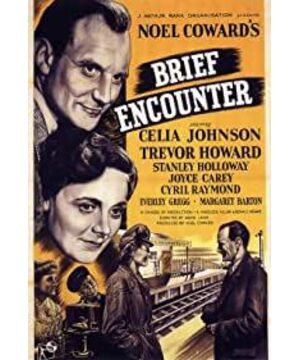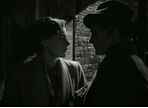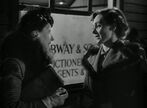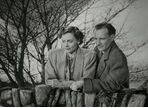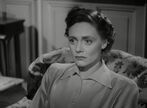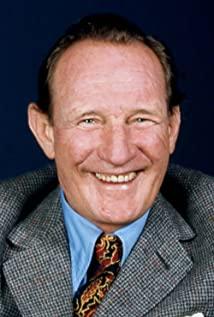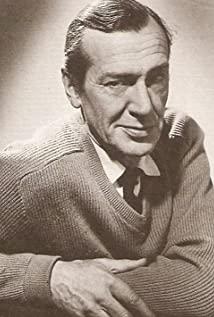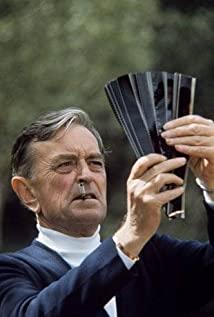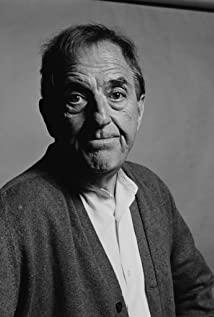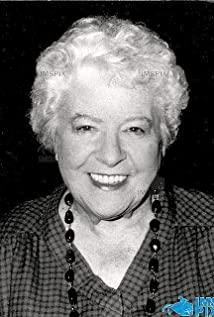While You Xing was in Chengdu during this time, I invited him to come to the Sakura Garden on the roof to host #WatchingMovies with You Xing#. One issue, one theme, four films, "try to choose films that are relatively young and have historical and entertainment value."
At seven o'clock in the evening on November 17th, we did our first movie viewing. Both the director and the audience are both happy and rewarding. "Since I started with "Meet Hate Late", the next few films are still related to marriage and love. Next Tuesday (November 30) at 7 o'clock in the evening, we will watch "Spiritual Spring Night" (also known as "Spring Night") together. "Who's Afraid of Virginia Woolf").
When You Xing was studying for a master's degree in the United States, he discussed with his friends what kind of music could not be used for film soundtracks. Take Rachmaninoff's work, for example, he said: "It's too strong, too romantic, it's easy to take people away."
A friend recommended him to watch David Lean's "It's Too Late". From the beginning to the end, he used Rachmaninoff's "Piano Concerto No. 2".
At the seven o'clock viewing party on November 17, You Xing re-watched "Meet Too Late" with us. Mr. Er sat next to me, and became excited from the beginning of the subtitles, because he heard the first movement of "Piano Concerto No. 2", which is the favorite work of Lord Er who started piano lessons at the age of five.
You Xing is the third time to see this movie. The epidemic has just eased, Chengdu is sunny, and the moon at night is nearly full. Seventy-seven years later, when British director David Lean filmed "Late Met" in 1944, more than 30 people gathered in the rooftop Sakura Garden to watch this film, which is far away in time and space. You Xing felt "amazing".
Will the extramarital affair of a middle-aged man and woman attract us today? I was a little skeptical before. Facts have proved that the classics must stand the test of time and space. An old-fashioned story that can be summed up in one sentence, told delicately through 87 minutes of ingenious arrangements, is moving enough. Telling the process is the director's skill.
The following is Yu Xing's narration, as well as a general record of the interaction with the audience. Not reviewed by the parties. Any mistakes or omissions are my responsibility.
The film was remade in the 1970s. It was a huge failure and quickly disappeared into the vast ocean of history. Starring Sophia Loren and Richard Burton, it didn't do well at the box office and received bad reviews. The comment said, "How can Americans be so stupid, asking Sophia Loren and Richard Burton is equivalent to asking Angelina Jolie and Brad Pitt to shoot today." Because "Meet Hate Late" is about the extramarital affairs of ordinary people who are not romantic, this is the core point that makes people watch and move people. Asking two superstars to repeat the story, even if the lines remain unchanged, is completely untenable.
Director David Lean went on to make Lawrence of Arabia, Doctor Zhivago and The Bridge on the River Kwai, all big productions of the era with astronomical budgets that people all over the world would see. This is a work he made when he was just debuting, when he was still an unremarkable director, and collaborated with a top stage playwright Noel Coward. He adapted Coward's three stage plays at the time, the most successful of which was "Meet Too Late". The stage play is a one-act play that only takes place in the waiting room. The playwright himself is gay, and it is conceivable that being a homosexual in Britain in the 1940s was basically sentenced to death. Therefore, some analysts believe that this may have been a story of two men, and the tension and sense of drama are so strong. In the movie we see: decency and dignity can basically take the life of a good middle-class woman. Once you know that the playwright who dare not come out is behind the scenes, you can better understand the setting of the whole story.
David Lean was not considered an artist or a great director at the time, just a director who faithfully adapted great screenplays. The film was very popular at the time and gave him a lot of courage to embark on his own path of directing.
In the scene where the hero and heroine entered a friend's apartment, the details were seen by an American director, Billy Wilder, who filmed "Peachy Apartment" in the 1960s.
Watching the film today, I noticed a detail that wasn't there before: the voice-over of the heroine. Stage plays rely mainly on performances and lines. So her inner drama is her lines on stage. A voiceover is used in the movie. From the point of view of my generation of film students, voice-over needs to be used with caution, because it is easy for the director to be lazy. But the voiceover here is brilliant and layered. Her voiceover was for her husband. A monologue. So many problems solved: how she really feels, what's bothering her. Extramarital affairs were only slightly worse than homosexuality in that era, and they were also easy to die. The voiceover is a brilliant way to get the audience to accept this controversial story, to get the audience to sympathize and accept the heroine, which is morally unacceptable.
The film was a hit when it first came out. After the 1960s, before and after the Vietnam War, the conservative social atmosphere in the West became open. Critics saw the film as representing outmoded values. After 2000, its status has risen again in the history of film, because the atmosphere has begun to turn conservative, and everyone has re-understood and accepted the works of this value. So, we can see that the era affects the audience's perception of the same film.
Yu Xing: This British film was shot in 1944 and was at war. Can't shoot in London, supplies are in short supply. I can only move to a small town in the north of England to shoot, most of which are real scenes. This was very rare at the time. At the time the camera was so big (half a person tall) and the lights were behind. So it's very difficult to shoot in real scenes. It's completely different from the last time I saw Hitchcock's studio show, this one is very moving. The space and perspective level are perfect. The most closed and depressing place is her home, where her husband has been in front of the fireplace. The director wisely chained the machine to show that it was a monotonous family. This was a very rare shot back then. I didn't know at first, whether it was live or studio. For example, in the apartment, she wears two layers of glass, and when she creates her anxiety, she has very hard lines. This was not acceptable for mainstream photography at the time either. Because people watch movies for pure entertainment, people want to see something bright and bright, without so many shadows. Her shadows are heavily used, an unconventional operation. Because he wanted to do everything in black and white to make people feel the emotions of the characters, he used light and shade and lines.
The older you watch a movie, the better you can understand what elements of the movie are working on the audience. No color, mono, not a lot of special effects, and none of the things that a lot of modern movies take for granted today—handheld photography, high-speed photography. Very complex plots can only be explained in the most basic way.
No matter how progress is made now, the basic logic of watching movies has never changed.
Regarding directing style: David Lean is rated in textbooks as the director who uses the most editing in the entire film history. In "Lawrence of Arabia", the match falls and the sun rises, which is the most classic scene in film history. He knows very well what he can add to the audience when the image changes. His audiovisual is excellent, including the direction of the actors. Ten years later he made summer time. Katharine Hepburn played a rural American female teacher who travels alone to Venice and is very anxious in a series of romances. For such a director, he will keep repeating a topic. Including "Doctor Zhivago" also has extramarital affairs. He was married seven times. Most people think it's a scumbag. But when he was shooting this movie, the scene of the two in the apartment, the actor did not understand why he acted like this. David Lean says you can be a little embarrassed when you're alone with women. The director is a person full of contradictions and hesitation, and such a person will have a similar way of handling in all works.
View more about Brief Encounter reviews


